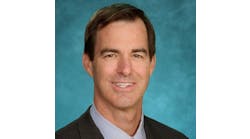The American Academy of Family Physicians (AAFP) Innovation Lab, which identifies innovations that optimize the family medicine experience, has released the results of a study on barriers and potential solutions to allow for mainstream adoption of value-based payment models and how these issues relate to physician burnout.
For its research efforts, AAFP has been partnering with Elation Health, whose EHR platform serves 30,000 clinicians caring for more than three million Americans, including thousands of small independent practices and large prominent digital health innovators. Elation Health secured $50 million in Series D funding in 2022.
The recent study was conducted by surveying 10 primary care practices of varying sizes, and AAFP said the following themes emerged:
• Infrastructure: A significant factor in burnout is the amount of work to be done related to the resources available to efficiently do the work. The study uncovered a threshold of financial investment needed to support adequate infrastructure to enable success in value-based payment and reduce the associated risk of burnout. In larger practices or in practices with network affiliations, economies of scale made value-based payment administration more manageable. Beyond human resources, the adoption of technical solutions supported operational efficiencies, helping contain operating expenses and enabling clinical and financial success.
• Capitation Factors: Practices with capitated models, or risk-adjusted, per-person payment models, experienced less burnout than those with payment models designed around retrospective “bonus” payments. The study also replicated findings that higher capitation rates combined with the greater percent of total revenue from capitation can most effectively relieve physician burnout.
• Quality Measures: The effort required to identify, deliver, report, and get paid for a set of payer-driven quality measures is proportionally high for the majority of practices, regardless of size. The study showed that practices with fewer payer contracts had less burnout, given its link to fewer or simpler workflows to achieve success.
• Payer-Practice Contract Quality and Innovation: The most successful practices in the study benefited from innovative and savvy contract design between the practice and the health plan, sometimes involving partner health systems. Practice leaders who worked closely with payer organizations to design contracts around the power of primary care to influence downstream utilization patterns and costs of care of an attributed population realized better financial outcomes for the practice, reported a better experience of delivering care, and enjoyed the least amount of burnout.
“Value-based care holds much promise by creating supportive collaborations between patient and physician, improving quality of care, and reducing healthcare spending,” said Steven Waldren, M.D., M.S., chief medical informatics officer at AAFP, in a statement. “In this second study with Elation Health, we found it critical to further explore the challenges family physicians face as they work to transition to value-based payment models and to understand which innovations help them break through these barriers without putting themselves at risk of burnout.”
According to another recent AAFP study, more than half of family physicians report being burned out. In this most recent study, among physicians facing burnout, the study cohort with the most severe symptoms had a majority of their revenue from fee-for-service payment models, while the cohort with little to no burnout had 75 percent or more revenue from value-based payment arrangements. This indicates that payment models likely have a significant impact on physician burnout.
“The study affirms what we see on a daily basis at Elation Health: while fee-for-service payment saddles clinicians with excess administrative burden, alternative payment models have the potential to make this even worse when poorly implemented. This has a profound impact on physician wellbeing and contributes to burnout across the primary care landscape,” said Sara Pastoor, M.D., senior director of primary care advancement at Elation Health, in a statement. “While the movement toward value-based payment holds great promise and is better for patients, payers, and primary care, these new incentive programs may contain their own challenges. We’re encouraged to see that innovations focused on the unique needs of primary care are easing the burden and responsibilities that contribute to burnout, making the adoption of value-based payment models a more attractive prospect.”


